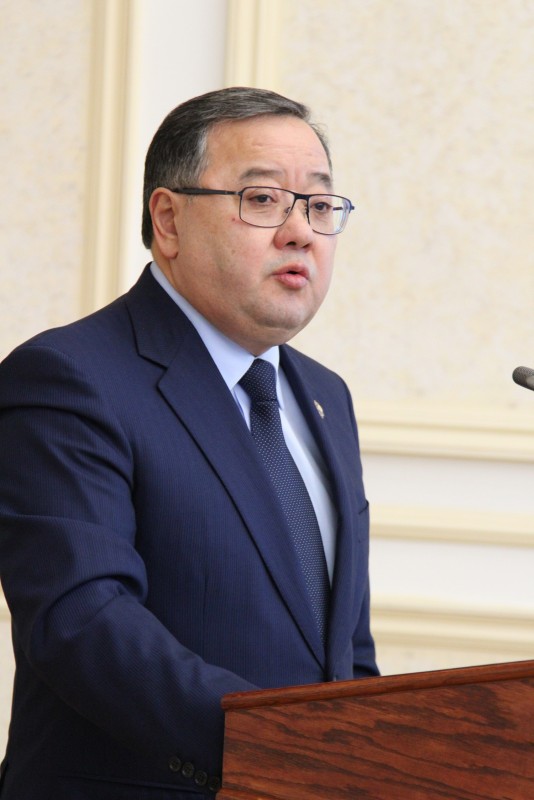ASTANA – Kazakhstan has presented a new model for prosecutors and anti-corruption services staff training, reported Tengrinews.kz.
The nation is set to introduce a judicial training system for law enforcement agencies including the prosecutor’s office, economic investigations services and anti-corruption authorities, said law enforcement academy Rector Ulan Baizhanov.
“We have not yet decided on the precise name of the new training model. This will imply either a specialist or judicial internship programme designed for two years. The specialised education course at the law enforcement academy will be completed over the first year. At the end of the course, trainees will acquire theoretical knowledge,” he added.
The second year of training will be devoted to internships with law enforcement agencies.
“For about five months, trainees will undergo an internship in the prosecutor’s office and two and a half months in the economic investigation service and in divisions of the anti-corruption service. Training is based on two trends. They are the replenishment and improvement of professional skills and the development of personal competencies, fostering communication skills and public speaking skills. During the educational process, focus will be made on interactive methods, namely discussion, brainstorming, training, public speaking, holding workshops and research reports,” he said.
Baizhanov noted the first year of study will end with a comprehensive test. Those who pass it will transfer to the second year of study, which affords the opportunity to gain access to an internship.
“We will try to eliminate the internship formalism. The academy will coordinate internship activities. At the end of the course, trainees will have to complete a comprehensive exam. The examination committee will consist of a number of law enforcement leaders, respected lawyers, academics and practitioners. Academy graduates will receive a competence certificate as an essential component to a diploma. It will contain a detailed letter of recommendation,” he added.
The pilot project of the programme is scheduled to launch in 2017, with recruitment expected to start in the following year. The first graduation of young professionals with law enforcement officer qualifications will be held in 2020.
“They will be eligible to apply for a specific list of positions, including investigator or prosecutor. Beginning in 2020, the law enforcement agencies will enrol only specialists with appropriate qualifications.
“Project implementation will allow us to form an agency of employees with a high level of professional qualification over five years. We hope that our project will become the basis for the future training system of law enforcement personnel,” said Baizhanov.
He added the first phase does not provide training for Ministry of Internal Affairs personnel.



